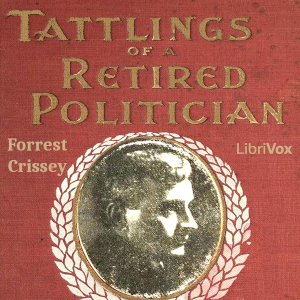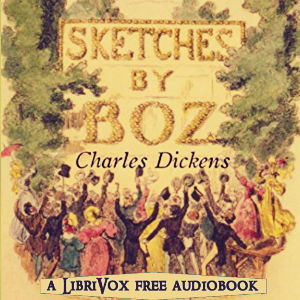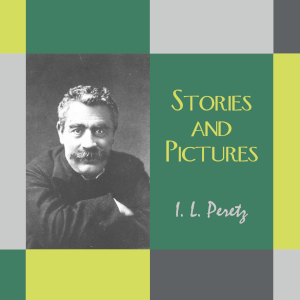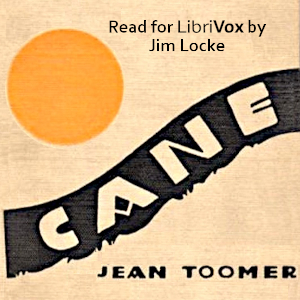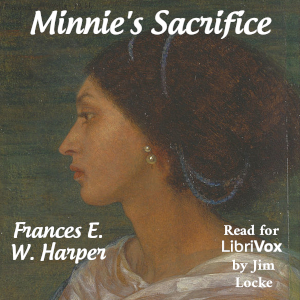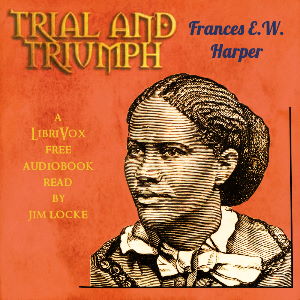Compilation of tales designed and arranged for young people. This volume covers tales from the North, the Rhine, Greece and Rome, tales from the Hudson River, and animal stories. - Summary by DrPGould
62 episodes
Im späten Mittelalter wird der Adlige Herzog Wilhelm von Breysach heimtückisch durch einen Pfeil ermordet. Die Nachforschungen ergeben, dass der kunstvoll gefertigte Pfeil für den Bruder des Ermordeten, Graf Jakob den Rotbart, geschmiedet worden ist. Sollte er tatsächlich aus Machtgier seinen eigenen Bruder ermordet haben? Graf Jakob leugnet und gibt als Alibi an, dass er in der Mordnacht bei der schönen und unbescholtenen Witwe Frau Wittib Littegarde von Auerstein gewesen sei -- eine Anschuldigung, die jene edle Frau in höchste Bedrängnis bringt... Die Aufklärung dieses Mordfalls in einer Zeit voller Intrigen und politischer Ränke macht den Text Kleists zu einem Vorläufer der Kriminalerzählung. Erst im 20. Jahrhundert setzte ein verstärktes Interesse für diese Erzählung ein, die nach ihrer Entstehung lange Zeit im Schatten von Kleists übrigem Schaffen stand. - Summary by Boris
4 episodes
"This book is in turns funny and sad. Violet Osborne is a very beloved child with no financial problems. She is both beautiful and good, and of course she must be happy. Yet, as we learn, she is a manipulative and overbearing woman who would do anything to get her way. This book tells us about her life as a girl, and takes us through her marriage and motherhood. It is a pleasant read, as the book is so witty and charming and the descriptions are very realistic". Summary by Stav Nisser.
42 episodes
"The letters (non-partisan) of Hon. William Bradley, Ex-Governor and former veteran of practical politics, written to his friend and protege Ned who is still busy 'carving a career back in the old state.'" ( F. Crissey) This is a novel filled with humorous political anecdotes by the main character, the Honorable William Bradley, told for the benefit of his protege, Ned. It conveys a sense of the ironic and humorous side of politics in Washington and back in their home state.
23 episodes

Two wealthy families are neighbors in Elizabethan England; one is staunchly Catholic and the other is devoutly Protestant. The attractive young scions of the families are drawn to each other in friendship and love, but are kept apart by their opposing religions. Life is very difficult for Catholics during those times. They are subject to fines, imprisonment, torture and ignominious death for practicing their faith. On the other hand, for various reasons some Catholics give up their inherited faith, and even betray and persecute their fellow-religionists. As the threads of plot are woven tighter, heroes emerge, sometimes most unexpectedly, as they grapple with theological doubts and conflicts, and undergo extreme suffering and loss. The many characters we meet ring true, whether they are brilliant or superstitious, stalwart or wavering, pious or violent; and it is a great privilege to spend time with such towering historical figures as St. Edmond Campion and Queen Elizabeth herself. Love, history, theology, suspense, and an array of colorful characters are sewn inexorably together in this large and compelling story. (Intro by Carol Pelster)
41 episodes

Im Dorf Sankt Peter im Schweizer Hochgebirge leben die Bewohner des regenarmen Glottertales mit der ständigen Gefahr von Gletscherabbrüchen, die ihre Lebensader, eine abenteuerlich konstruierte Wasserleitung, zerstören könnten. Um dieses Wunderwerk der alten Wasserleitung ranken sich Sagen und Legenden, die den Dorfbewohnern heilig sind. Wird die Wasserleitung einmal wirklich zerstört, so entscheidet bei der sogenannten Wassertröstung das Los, wer die Reparaturarbeiten in schwindelnder Höhe und unter Lebensgefahr auf sich nehmen muss. Ein dramatischer Einschnitt in das Leben jeder Familie die gezwungen ist, einen Vater und Ernährer in dieses unsichere Unterfangen zu schicken. Das Wildheuerehepaar Seppi und Fränzi Blatter mit ihren zwei Kindern Vroni und Josi muss genau diese Erfahrung machen und nichts bleibt mehr so, wie es war, weder für die Familie noch für die im Aberglauben verhafteten Bergbauern, noch für den Presi des Dorfes, der mit seiner schönen Tochter Binia das einzige Wirtshaus führt und zu allem Überfluss auch noch Fremde in diese abgeschiedene Welt holt. Summary by Eva K.
20 episodes
So what is the crown of life? Follow the journey of Piers and Irene as they attempt to discover. It is both a coming of age novel and love story at the same time, one which would bring delight to philosophers with many conversations for and against imperialism, romantics who would follow the long courtship in the center of the plot, and sociologists who would follow with interest the vivid way in which George Gissing describes the society in which he lived. - Summary by Stav Nisser.
37 episodes

Nothing seems to be known about Mr and Mrs William Platt, the writers of Stories of the Scottish Border. What they produced is an eccentric guidebook and history, seen partly through the ballads of the region. The book recounts the military stratagems, treachery and courage of those who struggled for control of the Border lands and of the whole country, and tells of the triumphs or tragic fate of those who took part on both sides. It also tells us stories of the Border Reivers, raiders who lived by riding out and stealing their neighbours’ livestock. Their lives were governed for several hundred years by a form of rough justice, and they showed an even rougher wit. While their adventures, though cloaked by the writers in romance and chivalry, were often petty and bloodthirsty, the ballads which distill their experience are, at their best, haunting and intensely moving. The Borders and Northumberland have changed little in aspect over the centuries, and I suggest following the book with a map and images of the places described, to give some idea of the wild remoteness and imaginative power of this Border land. - Summary by Jhiu
52 episodes
LibriVox volunteers bring you 9 recordings of Christy and The Pipers by Jean McKishnie Blewett.
This was the Fortnightly Poetry project for November 4, 2018. ------
This poem, set in Scotland, tells of a woman's reaction to the Pipes . ( David Lawrence)
9 episodes
LibriVox volunteers bring you 14 recordings of Santa Claus, Kriss Kringle or St. NIcholas by Anomymous.
This was the Fortnightly Poetry project for December 16, 2018. ------
This poem was published in booklet form with illustrations in 1897. - Summary by David Lawrence
14 episodes
Histoire d'amour.
Voici un très beau roman, riche et profond, très apprécié et commenté, écrit d’une plume raffinée et poétique ; les sentiments complexes des personnages sont cernés avec subtilité ; la nature, les saisons, les couleurs sont omniprésentes, décrites avec un sens esthétique remarquable.
Rejoignons la France de la fin du 19ème siècle, son évolution, la société parisienne, et celle d’un village près de Port-Royal-des-Champs, qui fut un haut lieu janséniste,
et les personnages, si bien évoqués :
Augustin de Chanteprie, imprégné de religion et de l’histoire de sa famille, qui va découvrir l’amour auprès de Fanny Manolé, artiste pastelliste à Paris, tous leurs proches, et amis…
et Jacquine dite La Chavoche, et Madame de Chanteprie, la Sainte, les deux mères d’Augustin, à son berceau, à son chevet.
Un bel ouvrage qui porte à réfléchir.
M. Tinayre fut très proche des milieux artistiques.
Elle est enterrée à Grosrouvre, dans les Yvelines, France.
- Summary by ChristianeJehanne
33 episodes
Everywhere on earth the fairy world of each country is older and perhaps more enduring than the one we see and feel and tread upon. So I tell in this book the folk lore of the Korean people, and of the behavior of the particular kind of fairies that inhabit the Land of Morning Splendor. (From the Preface by William Elliot Griffis)
26 episodes
"As the noblest attribute of man, family pride had been cherished time immemorial by the noble race of Rossville. Deep and incurable, therefore, was the wound inflicted on all its members by the marriage of the honorable Thomas St. Clair, the youngest son of the Earl of Rossville, with the humble Miss Sarah Black, a beautiful girl of obscure origin and no fortune." And so the stage is set for our plot, which focuses on the implications and complications of the return from France to Scotland of the Rossville widow and her daughter-heiress Gertrude, who must suffer the onslaught of relations and suitors as well as a mysterious, threatening stranger who plagues her mother. And while we suffer with Gertrude, who also may be in love with the wrong man, we enjoy a myriad of wonderful satiric portraits of the menagerie of minor characters in this lively story. (Summary by Jim Locke)
106 episodes
"He was a stranger in Matcham, a 'foreigner' as the villagers called such alien visitors. He had never been in the village before, knew nothing of its inhabitants or its surroundings, its customs, ways, local prejudices, produce, trade, scandals, hates, loves, subserviencies, gods, or devils , and yet henceforward he was to be closely allied with Matcham, for a certain bachelor uncle had lately died and left him a small estate within a mile of the village."
37 episodes
Between the former site of old Fort Dearborn and the present site of our newest Board of Trade there lies a restricted yet tumultuous territory through which, during the course of the last fifty years, the rushing streams of commerce have worn many a deep and rugged chasm. These great canons—conduits, in fact, for the leaping volume of an ever-increasing prosperity—cross each other with a sort of systematic rectangularity, and in deference to the practical directness of local requirements they are in general called simply—streets. Each of these canons is closed in by a long frontage of towering cliffs, and these soaring walls of brick and limestone and granite rise higher and higher with each succeeding year, according as the work of erosion at their bases goes onward—the work of that seething flood of carts, carriages, omnibuses, cabs, cars, messengers, shoppers, clerks, and capitalists, which surges with increasing violence for every passing day. Summary by HENRY B. FULLER
25 episodes
A collection of early writings of Charles Dickens under his early pseudonym, "Boz." They first appeared in various publications from 1833 to 1836. Divided into four sections, "Our Parish," "Scenes," "Characters," and "Tales." The first three sections are descriptions of various people and places, and the final section contains fictional short stories.
58 episodes

This is Stowe's second book, another one depicting the horrors of southern slavery, published 4 years after Uncle Tom's Cabin and 5 years before the commencement of the Civil War, when new territories wanting admittance into the US (Texas, Oklahoma, name the states), were vying to become slave states, threatening to spread the heinous system. While a work of fiction, the book successfully documents the horrors of the slave system, and depicts how some slaves escaped into the Dismal Swamp (a real place spreading over a million acres in southeastern Virginia and northeastern North Carolina), where they often lived for years hiding from their pursuers, often in community. Dred, one of Stowe's most unusual heroic characters, proclaims his mission as follows: ". . .the burden of the Lord is upon me . . . to show unto this people their iniquity, and be a sign unto this evil nation!'" The book depicts that slaves were not all passive victims, as so often portrayed, and had many white sympathizers, but all were caught in the grips of a legal system so stacked against them that nobody could overturn it without threats to life and limb. The book was welcomed by the anti-slavery movement in Europe as well as in America, and helped move the needle of sympathy to finally overthrowing the system. - Summary by Michele Fry
62 episodes

La novel·la narra l'enfrontament entre dos joves a l'Alta Garrotxa catalana de mitjans del segle XIX. El conflicte arrossega tota la comarca en un enfrontament civil dins la complicada i abrupta geografia pirinenca. L'Ibo, un personatge maliciós i violent, s'uneix a una partida de bandits itinerants, trabucaires romanents de les guerres carlines. L'Ibo acaba liderant el grup i segresta la Coralí, promesa de l'Albert, que és un modest hereu rural de caràcter més aviat moix i que era antic amic de malifetes de joventut. L'Albert i els seu companys s'alien amb el cap dels mossos d'esquadra per endegar una guerrilla sagnant en persecució del bandoler. A mesura que el conflicte s'allarga per la dificultat del terreny, que permet als trabucaires d'amagar-se o maniobrar per múltiples valls, cingles, boscos i masos remots, l'Albert ens explica el procés que el porta de l'abatiment a la desesperació i a la demència, incapaç de trobar un agafall entre una societat que és tan feréstega i ferotge com el paisatge i els animals que l'envolten. La història l'explica el mateix Albert en primera persona, en forma d'unes memòries que hauria compartit amb l'autor de la novel·la poc abans de morir.
The novel narrates the confrontation between two young men in the Catalan Alta Garrotxa region during the mid-nineteenth century. The conflict drags the whole region into civil strife on the abrupt and bewildering Pyrenean geography. Ibo, a malicious and violent character, joins a pack of marauding bandits, trabucaires from the Carlist wars. Ibo ends up leading the group and kidnaps Coralí, the fiancée of Albert, a modest rural heir of a rather meek character who also was an old accomplice of misdeeds in their youth. Albert and his teammates ally themselves with the local police squadron to start a bloody guerrilla war in the pursuit of the bandits. As the conflict drags on due to the difficulty of the terrain, which allows trabucaires to hide themselves or maneuver through multiple valleys, cliffs, forests and remote farms, Albert tells us his own debasement from despondency to despair and into dementia, as he is unable to find a foothold amidst a society that is as wild and ferocious as the landscape and the animals that surround him. The story is narrated by Albert himself in the first person, in the form of memoirs that he would have shared with the author of the novel shortly before his own death. - Summary by Joan Pujolar
27 episodes
Murder, mystery, mayhem, romance and relationships. Our classic who-done-it takes place in olde Dublin, Ireland in the village of Chapelizod around the Royal Irish Artillery base. A mysterious skull has been uncovered in the church graveyard. Whose skull is it, and how did it get those two crushing head wounds and the large hole in it, and why? I think you will enjoy hearing as well as I loved reading all 100 chapters. - Summary by John Brandon
100 episodes
A collection of short stories written originally in Yiddish and later translated into English. These stories were published under censorship in Russia from 1875 to 1900 provide an illuminating portrayal of the harsh life conditions for Russian Jews. Summary by Elsie Selwyn
63 episodes

Wandering or Pang Huang was Lu Xun's second collection of stories. It was published near the end of 1925 and included 11 stories written between 1924 and 1925. (Note: The Librivox reading is based on the Gutenberg version which includes only 8 stories, omitting “A Happy Family”, “Soap” and “Brothers”.) The title Lu Xun gave to the collection is Pang Huang, translated as Wandering, but literally means unsettled, agitated or restless. Lu Xun employed points of view in his stories in a way that was novel at the time for Chinese literature, helping readers consider new possibilities about the true nature of the reality around them. Some stories look at the problem of how members of the intellectual class are to live their lives, e.g. In the Tavern, Regret for the Past, whereas others are commentary on traditional customs and institutions, the specific dysfunctions of particular customs and institutions, and also at the general result in which people are discarded, e.g. The New Year Sacrifice and A Public Example.《徬徨》是近代文學家魯迅創作的小說集,本版收集了《祝福》、《在酒樓上》、《傷逝》等8篇小說。作品表達了作者徹底的不妥協地反對封建主義的精神,是中國革命思想的鏡子。作品主要包括知識分子和農民兩類題材,前者以《在酒樓上》和《傷逝》為代表,後者以《祝福》和《示眾》為代表。整部小說集貫穿著對生活在封建勢力重壓下的農民及知識分子“哀其不幸,怒其不爭”的關懷,該小說集在深廣的歷史圖景中,對人物命運的敘述滲透著深濃的感情。
8 episodes
A collection of folk stories and fairy tales from Southern Nigeria gathered by Elphinstone Dayrell, deputy commissioner of the region when the book was published. - Summary by Elsie Selwyn
41 episodes
LibriVox volunteers bring you 17 recordings of The Wishing Bridge by John Greenleaf Whittier.
This was the Fortnightly Poetry project for July 7, 2019. ------
John Greenleaf Whittier was an American Quaker poet and advocate of the abolition of slavery in the United States. Frequently listed as one of the Fireside Poets, he was influenced by the Scottish poet Robert Burns. - Summary by Wikipedia
17 episodes
In a nineteenth century Sicilian fishing village, the Malavoglia family gambles everything on being able to profit from a cargo of lupin nuts. The cargo is lost at sea and a succession of misfortunes and tragedies assails the family. A masterpiece of social commentary hailed within Italy but neglected by the wider world, The House by the Medlar Tree ranks alongside the works of Zola, Dickens or Balzac among the great books of European literature. The book is the inspiration behind the 1948 film 'La Terra Trema' ('The Earth Trembles'), one of the earliest works of the great Italian director Luchino Visconti. - Summary by Tom Denholm
20 episodes
Anatole Le Braz fut un écrivain de talent, recueillant des contes, des traditions, des us et coutumes, des croyances, en Bretagne. Bretagne qu'il fit connaître et aimer en France, et aussi au Canada, aux U.S.A., par ses livres et conférences.
Ici, trois chapitres, constitués de plusieurs nouvelles : Paysages de légende, Nuits d'apparitions et Équipées de printemps.
Où l’on suit un barde aveugle, la fragile Tryphine, des personnes aussi rencontrées par l’auteur, et où l’on découvre des récits, des croyances et des faits impressionnants… et peut-être véridiques… dans cette contrée si riche de paysages variés.
Et, avec Equipées de printemps et ses 2 Nouvelles:
- La foire grasse, une épopée hilarante. Humour et gourmandises bretonnes...
- Les Pâques de Loull Vraz, Loull qui va, mais oui…, aller à Rome et aussi à Jérusalem, avec Marie-Janic…
Sa « circulaire moitié » craint le pire. - Summary by Christiane Jehanne
13 episodes
Reading this book, I had a vision of a land, heretofore sunk in the mists of muteness, suddenly rising up into the eminence of song. Innumerable books have been written about the South; some good books have been written in the South. This book is the South. . . . . Part One is the primitive and evanescent world of Georgia. Part Two is the threshing and suffering brown world of Washington. . . . Part Three is Georgia again . . . this black womb of the ferment seed: the neurotic, educated, spiritually stirring Negro. From the Forward by Waldo Frank
31 episodes
The charming story of “Gudrun” is a romance of the old heroic period, written by some unknown poet of Austria or Bavaria in the thirteenth century. Next to the "Nibelungen Lied," it is the most important of the German epic poems...The same elemental passions are depicted. The men are brave, vigorous heroes, rejoicing in battle and feats of prowess; the women are beautiful, constant, and courageous. There are many fine delineations of character in the original, as well as vigorous sketches of northern scenery. The figure of Gudrun stands out in bold relief among the maidens. There are few more beautiful characters, indeed, in the poems of the old heroic period...Gudrun’s name is always spoken by her people with reverence. "Her courage and constancy were extolled by them, and in after days her fame was as radiant as the stars in the heavens." (George P. Upton, Translator's Preface)
24 episodes
Esta historia milenaria cuenta la seducción de una ingenua pastora, Adega, por un peregrino a quien ella identifica con Dios y del que asegura haber quedado embarazada. Quienes la escuchan la tienen por endemoniada, pero ella exhala encendida religiosidad, impregnada de fábulas y visiones, lo que supone el predominio de la imaginación sobre la dura y terrible realidad de la vida en las aldeas gallegas de ese momento. Flor de Santidad es una obra maestra de la novela breve, con todos los elementos lingüísticos y estilísticos que caracterizan la perfección de la escritura de su autor. - Summary by Ditirambo
5 episodes
A rollicking juvenile adventure tale, this historical fiction book received the Newbery Honor award in 1922. Set in England during the early 1200s, the scion of a Western Marches noble family relates the many encounters and battles that he faces with the Saxon yeoman who becomes his fast friend. This yeoman, great of cross-bow skill and strategy, often saves the day, and after earning knighthood, becomes instrumental in the making of the Magna Carta. - Summary by Lynette Caulkins
15 episodes
This volume contains the principal hero-lays of the six great epic cycles of the Teutonic Middle Ages: The Langobardian Legends, the Amelung and Kindred Legends; Dietrich of Bern's Adventures; the Nibelung Legends; the Hegeling Legends; and Beowulf. To them, the author has added the great mythical Carolingian cycle, which centred round the persons of Charlemagne and his heroes, and the Breton ones of King Arthur and his Knights of the Round Table, as well as the legend of the Holy Grail. Therefore, this one book tells all of the great epic and romances of the Middle Ages in accessible language for the general public. (Summary by Leni)
44 episodes

Giovanna and Costantino Ledda are a happily married couple living with their young child in a Sardinian country village close to their extended family. Costantino is wrongly convicted of murdering his wicked uncle and with no way of supporting herself, Giovanna reluctantly divorces him and is driven to marry Brontu Dejas, a wealthy but brutish drunkard who has always lusted after her.
As well as enduring a marriage amounting to slavery, Giovanna is derided by villagers for having two husbands. When Constantino is freed after the real murderer confesses to his crime, he and Giovanna are together again, but this time their relationship is outside the law, and sets both on a path of destruction, at the mercy of religious and social forces they cannot control.
The author, Grazia Deledda, won the Nobel Prize for Literature in 1926, for writings which show passion and sympathy for the people of her native Sardinia, and ‘After the Divorce’ (Dopo il Divorzio) is one of her finest works. - Summary by Tom Denholm
20 episodes

A major preoccupation of Hesse in writing Siddhartha was to cure his "sickness with life" (Lebenskrankheit) by immersing himself in Indian philosophy such as that expounded in the Upanishads and the Bhagavad Gita. The reason the second half of the book took so long to write was that Hesse "had not experienced that transcendental state of unity to which Siddhartha aspires. In an attempt to do so, Hesse lived as a virtual semi-recluse and became totally immersed in the sacred teachings of both Hindu and Buddhist scriptures. His intention was to attain to that 'completeness' which, in the novel, is the Buddha's badge of distinction." The novel is structured on three of the traditional stages of life for Hindu males (student (brahmacharin), householder (grihastha) and recluse/renunciate (vanaprastha)) as well as the Buddha's four noble truths (Part One) and eight-fold path (Part Two) which form twelve chapters, the number in the novel. Ralph Freedman mentions how Hesse commented in a letter "[my] Siddhartha does not, in the end, learn true wisdom from any teacher, but from a river that roars in a funny way and from a kindly old fool who always smiles and is secretly a saint." In a lecture about Siddhartha, Hesse claimed "Buddha's way to salvation has often been criticized and doubted, because it is thought to be wholly grounded in cognition. True, but it's not just intellectual cognition, not just learning and knowing, but spiritual experience that can be earned only through strict discipline in a selfless life". Freedman also points out how Siddhartha described Hesse's interior dialectic: "All of the contrasting poles of his life were sharply etched: the restless departures and the search for stillness at home; the diversity of experience and the harmony of a unifying spirit; the security of religious dogma and the anxiety of freedom." Eberhard Ostermann has shown how Hesse, while mixing the religious genre of the legend with that of the modern novel, seeks to reconcile with the double-edged effects of modernization such as individualization, pluralism or self-disciplining. - Summary by Wikipedia
12 episodes
This is a collection of the author's short stories and poems where she writes about the collective experience of African American women, and African Americans in general. But she is sharpest when she pushes back against the notion that women must accept and endure a subservient role to men. - Summary by James K. White
23 episodes

In 1904, Margaret Nevinson, a respectable lady and active suffragette, joined the board of guardians in Hampstead Heath. The guardians had responsibility over the parish workhouse. In the UK, before the 1930s, one could not receive welfare assistance unless he or she entered the workhouse. A house for which one had to work. The conditions were so poor, sometimes even poorer then conditions in prison. The workhouse inspired many novels, the most famous is Oliver Twist. This collection of short stories is about the horrors Margaret saw, chiefly about things women had to endure. A married woman collected money and found a house for her and her children, but could not leave the workhouse as she was, by law, "the property of her husband." This particular story was adapted from her one-act play "In The Workhouse" which helped change that law only two years later. In another story, a smart lady who studied at the University Of Cambridge sinks into depression after the death of her husband and finds herself drunk at the workhouse. In 26 tales, Nevinson details the horrors of the system, one after the other, in an engaging and elegant style which appealed to the public. This book is perfect for fans of Charles Dickens, and for all those who love feminism and social history. - Summary by Stav Nisser.
27 episodes
Minnie, who lives in the South, does not know she is a mulatto. She is sent to the North after her mother's death, and there she marries Louis, who is ironically also of mixed parentage. The story revolves around their discoveries and how they deal with their true identities. (N.B. There are some missing portions of the text.)
19 episodes
Picture a tranquil English village, with an inn on the green. A lone patron enjoys his wine and teasing the landlord's pretty daughter, when suddenly they are rudely interrupted by a local aristocrat and his two henchmen. These same three reappear the following day to disrupt the May Day celebrations.Suddenly, a group of men in Lincoln green appear to save the day. But who are they? This is a different take on the tale of Robin Hood, placing him in the time of Henry III, rather than the more traditional reign of Richard I. James claims to have history on his side as he relates the story of an intelligent yeoman fighting against the tyrannical Henry and Simon de Montford of Leicester. Meanwhile, we follow the romance of Hugh and Lucy as they try to overcome the prejudices of her father and brother and the evil conniving of her cousin, Richard.
44 episodes
This novel, like two other novels that Harper serialized in The Christian Recorder, sets forth the principles which make for a meaningful, moral life. In Trial and Triumph, we follow Annette Harcourt through trials and tribulations, which test her resolve, but because she clings to her values, she does after much struggle achieve success and as a further reward also love. (N.B. There are some missing portions of the text.)
20 episodes
Novela picaresca y costumbrista del escritor chileno Juan Rafael Allende. Fue originalmente publicada como folletín en el periódico satírico "El Poncio Pilatos", de propiedad de Allende, en 1893. Ese mismo año la novela era editada como libro. La obra expone los avatares de la vida política y las costumbres sociales chilenas, a través de la mirada de un perro quiltro (sin linaje). (Summary by Phileas Fogg)
20 episodes

"I have called the present volume "Legends of Saints and Sinners," which to a certain extent it is; but I mean it for a book of Irish Christian folk-lore. My idea in compiling it has been to give for the first time a collection of genuine Irish folk-lore which might be called "Christian." By this I mean folk-stories and folk-poems which are either entirely founded upon Christian conceptions, or else are so far coloured by them, that they could never have been told—at least in their present shape—had not Christianity established itself in Ireland. Every one of these stories conforms fairly to this standard, except one or two, which I give as necessary corollaries. They are all translations from the Irish. I have found hardly any such stories in English. They were mostly collected by myself from the mouths of native speakers, but three or four of them I have taken from Irish MSS. in my own possession, and a few more were given me by my friends. Not one of these stories was ever translated into English before, with the exception of those which I have taken from my own "Religious Songs of Connacht." - Summary by From The Introduction
47 episodes
Genji Monogatari, or The Tale of Genji, is a Japanese classic novel from the eleventh century. Supposedly commissioned by members of the Imperial Family, it tells the story of the son of the Emperor's favorite concubine and his role as a privileged boy and man, but not quite recognized as royal. He is placed in a loveless marriage, but continues a number of 'friendships' with the women of the court. This translation brings us the first seventeen chapters, and there is some dispute over the authorship of later (not included) chapters. The book gives us a fascinating insight into court life of the period. - Summary by Lynne Thompson
19 episodes
In Spanish California, a troubling pattern had developed. The natives were reduced to peasants, the Franciscan friars that ministered to them were derided, and the only people who mattered were the caballeros – who styled themselves as knights of the New World. These men strutted about in elegant clothes, riding magnificent horses, and sporting rapiers at their sides that they were quick to draw if they felt their honor was affronted.
Into this world burst Zorro (Spanish for “fox”). A later-day Robin Hood, he stole from the rich and gave to the poor, but he also took it upon himself to punish men who had notably abused others. Cloaked and masked, appearing suddenly from the dark, he always stayed ahead of the manhunt launched at his heels.
The authorities called him a highwayman.
And when the doings of a corrupt governor began to affect the good people around the pueblo of early Los Angeles, Zorro responded – vigorously. Summary by Mark Smith
39 episodes
Published two years after Gissing's death, this novel tells the story of Will Warburton. Will loses his money in a failed business venture and has to come to terms with his new job as a grocer. This is a book about acceptance, love, and, of course, the meaning of money and status. - Summary by Stav Nisser.
48 episodes
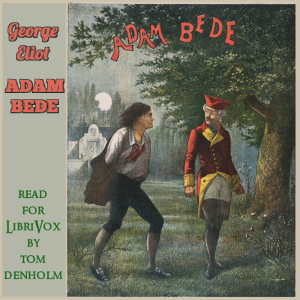
George Eliot was the pen name of Mary Ann Evans – an ironic ‘deception’ given that Adam Bede, her first novel, is written unashamedly from a feminist standpoint.
The story centres on a pastoral love triangle. Two young men, carpenter Adam Bede and squire Captain Arthur Donnithorne, are both in love with the mercurial Hetty Sorrel. There’s a further love interest between Adam and beautiful lay preacher Dinah Morris.
The setting is a country village in the north of England in the last years of the eighteenth century. The author paints a wonderful landscape of contemporary life as it really was, and excels in the portraits of her characters. Each is flawed, each has their own passions, each is unique, and through this great novel, Eliot put her stamp on literature and on the way we view the vagaries of character, helping us to see people as they really are.
This is one of the greatest novels in the English language. First published in 1859, Adam Bede has never been out of print since, which speaks volumes about its timeless quality. - Summary by Tom Denholm
62 episodes
The town traveller is himself a British salesman, living in a lower class part of London in the Victorian era. The story depicts his interactions with his neighbors, and thus brings us images and vocabulary of personal exchanges, street scenes and practices of that time and class. The story is generally lighthearted and the action fast paced, although the characters are not at all intricate. (Arnold Banner)
27 episodes
Krátká novela českého spisovatele Viktora Dyka, jejímž námětem je staroněmecká saská pověst. Krysař přichází do města, aby ho zbavil krys; když mu pak ale není vyplacena slíbená odměna, krutě se měšťanům pomstí. Dyk tento motiv zpracoval s prvky symbolismu i romance, což z Krysaře dělá nadčasové a poetické dílo. (Summary by Kudrna)
26 episodes
An historical novel set in Scotland in 1736, involving a riot and surrounding drama. - Summary by Deon Gines
51 episodes
牛郎织女传为明代朱名世编辑的白话神话小说,原作者已不可考,讲述了牛郎和织女被玉帝拘禁,分开至天河两侧,后因情深而得以于每年七月七夕自天河两侧踏鹊桥团聚的爱情故事,其中牛郎趁织女洗澡时偷走织女的衣服的情节是编者首次加入的。该书整合了历朝历代关于牛郎和织女的故事,是目前的第一部完整记述牛郎织女故事的中篇小说。
This is the love story of the cowherd and the weaver girl, who were separated by force to the two ends of the heavenly river. They later moved the Jade Emperor by their persistence and were permitted to meet once a year on a bridge of magpies. The two lovers are paralleled to the stars Vega and Altair in the Milky Way. (summary by Guomin)
12 episodes
Nine stories, chapters, or essays about Christmas or around Christmas. - Summary by David Wales
9 episodes



